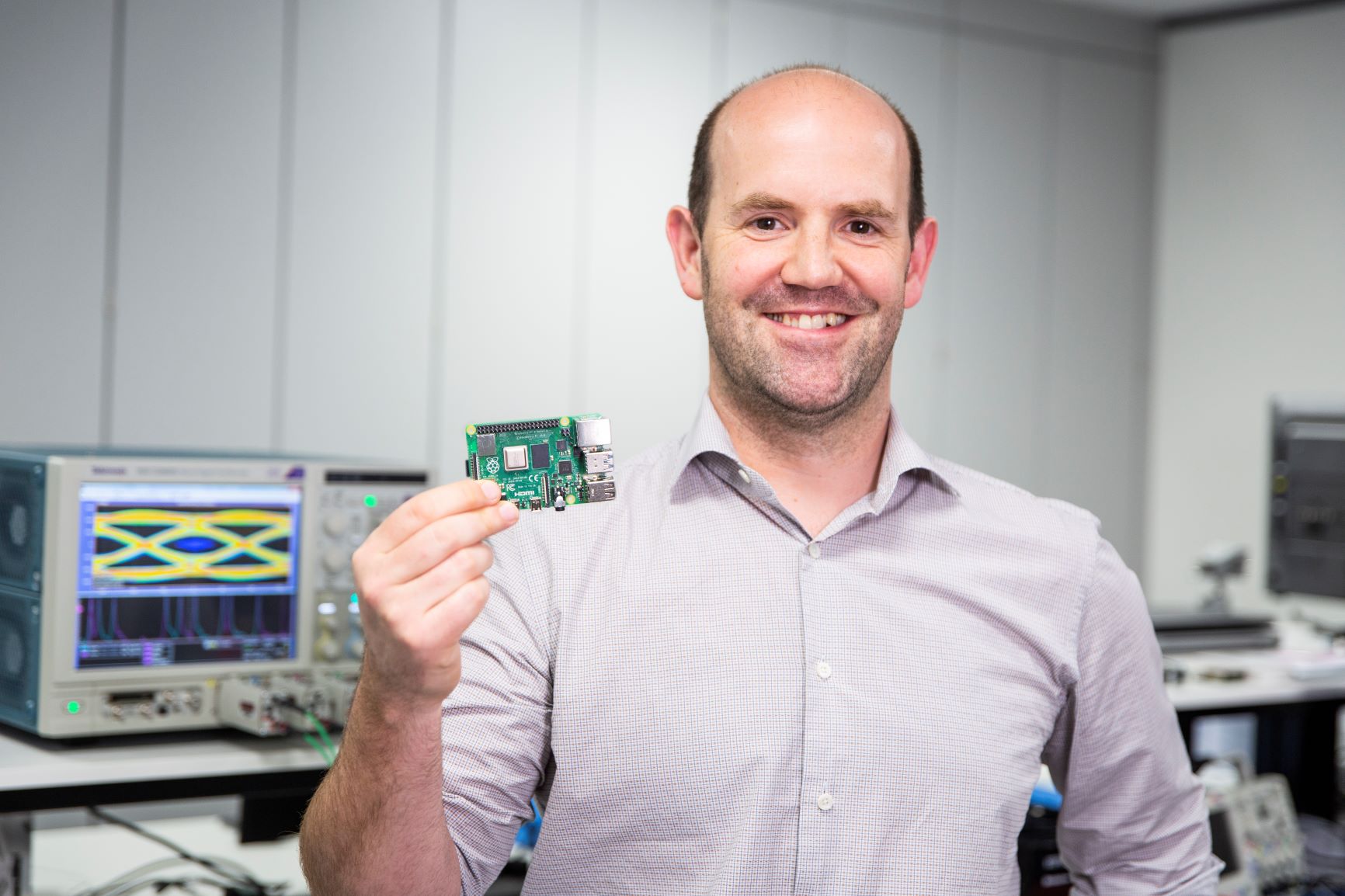Q: How does Raspberry Pi 4 differ from previous models?
A: Raspberry Pi 4 offers roughly three times the performance of its immediate predecessor, Raspberry Pi 3+, and forty times the performance of the original Raspberry Pi from 2012. For the majority of users, it delivers PC-equivalent performance, achieving most tasks handled by modern PCs, such as multi-tab web browsing, streaming video, sharing files and editing documents, whilst remaining at the established low cost of other Raspberry Pi models.
Q: What changes were made to the chip itself?
A: It’s a pretty fundamental overhaul of the CPU and memory, the multimedia display output and non-multimedia IO – practically every aspect of the design has been overhauled.
Q: Was Raspberry Pi 4 launched in response to customer demands or was it an organic development of the platform?
A: We do have certain features in the Raspberry Pi 4 that are an adaptation to feedback from our markets. For example, the success of Raspberry Pi 3 and 3+ in thin-client systems prompted us to make the Raspberry Pi 4 dual display – single display is a significant limitation for many end users in this market.
We’ve also added more low-speed serial interfaces (UARTs, SPI, I2C), enhancing communication capabilities with industrial equipment. The general uplift in performance, storage capacity and IO speed (USB 3.0, Gigabit Ethernet) also improve our value proposition for industrial/commercial applications.
Q: Which markets are Raspberry Pi computers used in the most?
A: Raspberry Pi can provide businesses with a quick, low-cost way to automate processes and become more efficient. We’re seeing them used in areas like manufacturing, enterprise computing, digital signage, healthcare and attractions. Additionally, our open approach means it can work with pretty much any existing industrial equipment and standards. Currently over 50% of the six million Raspberry Pi units we sell each year are destined for industrial and commercial use.
Q: Is the education sector still important for Raspberry Pi?
A: The education market will always be important to Raspberry Pi – the Raspberry Pi 4 is not only suitable for the computing education of the original models but can be used as a general-purpose classroom computer. Whilst our sales into education are smaller than into industry, we still estimate that in 2018 one million units were sold into that market alone.









